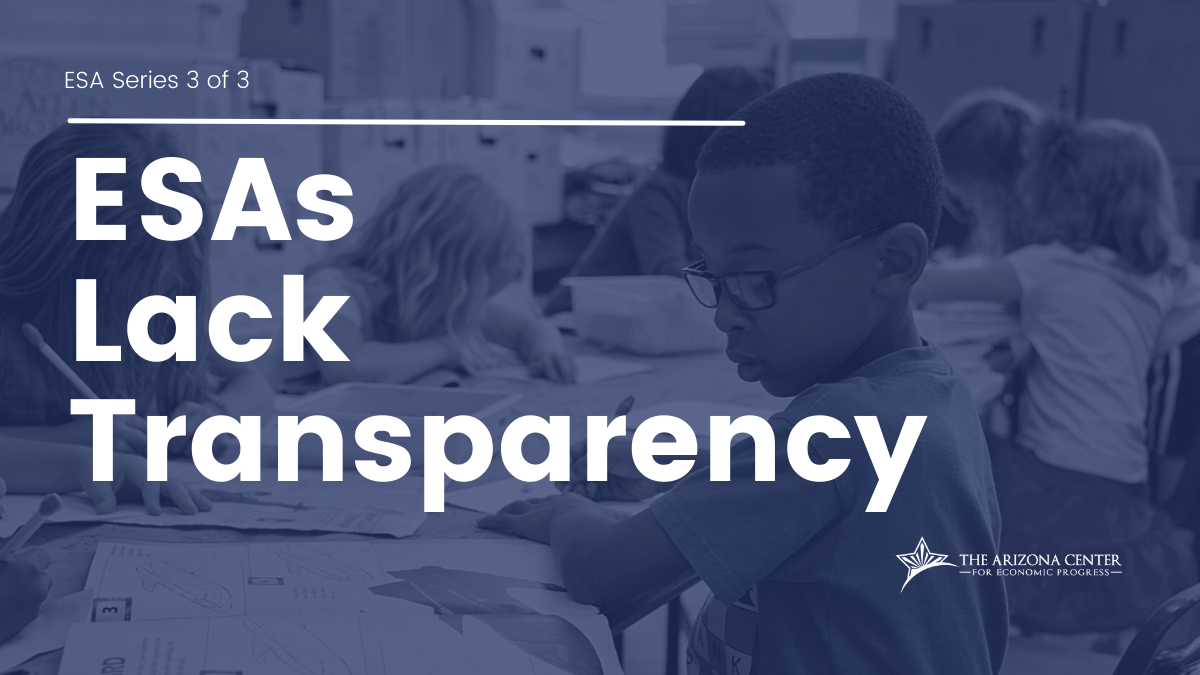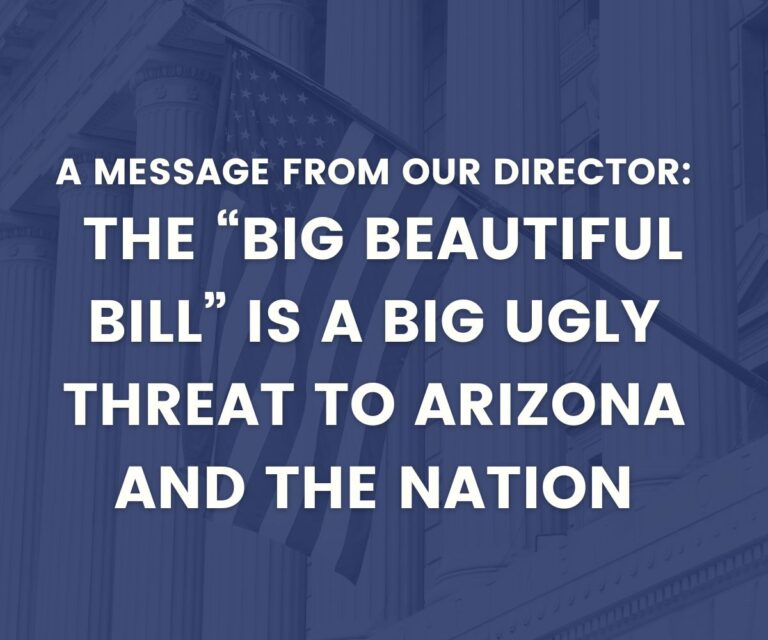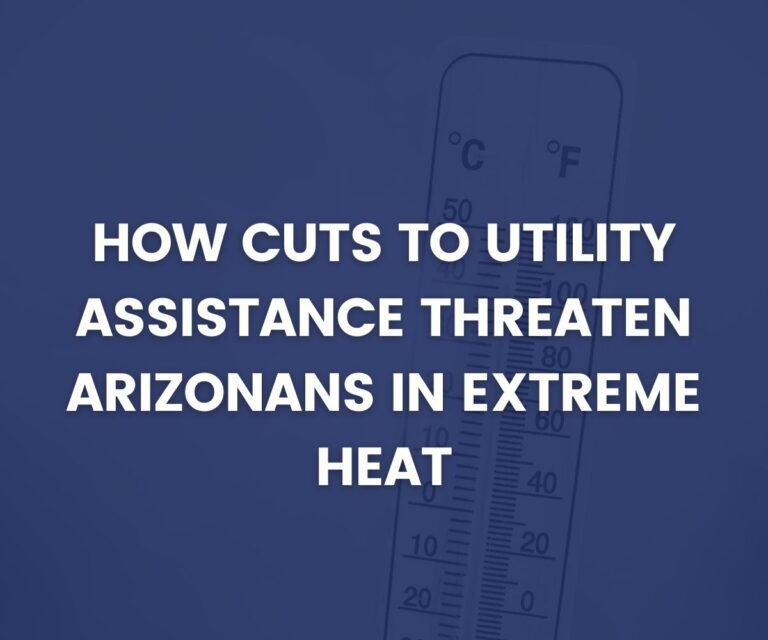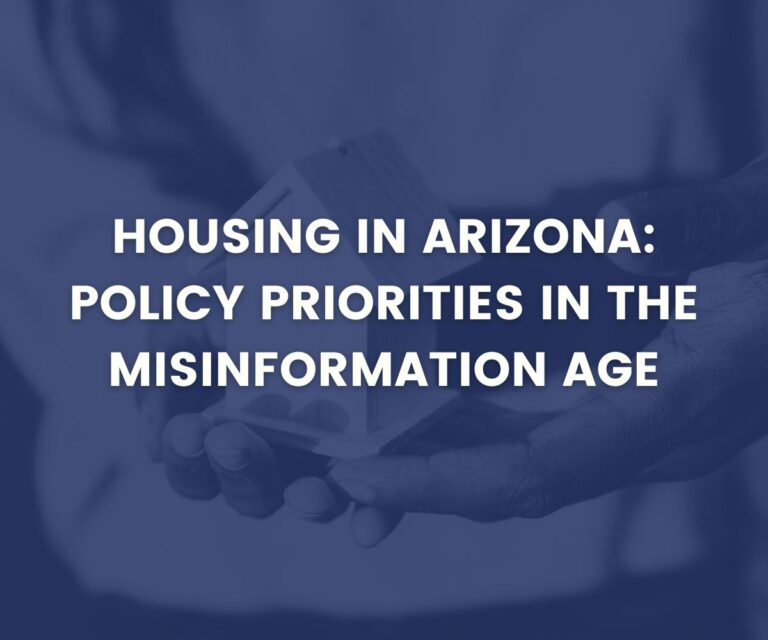
School Vouchers Lack Necessary Transparency and Accountability
This post is part of a series including Arizona School Vouchers, Explained, School Voucher Costs Have Risen Much Faster Than K-12 Funding Increases, and School Vouchers Lack Necessary Transparency and Accountability.
ESA vouchers lack the transparency of traditional public schools. The Arizona Department of Education publishes volumes of information on public schools. Meanwhile, very little information is available about ESA students, how the $155 million in ESA vouchers is spent, or how students who use ESA vouchers perform in school, including:
- Demographic information on students who use ESA vouchers and the schools they attend, including data on gender, race, and ethnicity.
- Information on the schools who accept ESA vouchers, including teacher experience and credentials, or whether the ESA voucher is being used to homeschool.
- Student progress including math and reading test scores, promotion rates, graduation and dropout rates. (Note: students who use ESA vouchers are not required to take the Arizona Merit or any other standardized test.)
- What expenditures ESA vouchers are supporting, including how much ESAs are being used to pay for tuition and fees, standardized testing, or other types of educational expenses.
- Whether use of an ESA voucher has been denied by a school that has refused to enroll a student, or a vendor that has refused ESAs as a form of payment.
In 2016, the Arizona Auditor General identified disturbing issues with ESA vouchers, including for unallowed purchases like fast food, lodging, house, cosmetics and, according to an Arizona Republic article in 2017, services at a health clinic that led to the assumption that an ESA voucher paid for an abortion. Even after safeguards were put into place, some parents have attempted to circumvent the controls.
Some parents attempt to use ESAs to pay for things that are not allowed. Despite additional measures to curb abuse of ESA vouchers, the Arizona Department of Education continues to receive reimbursement orders or debit card purchases that are incomplete or rejected. For example, in December 2021 the Arizona Department of Education (ADE) reported that 21 percent, or 1 in 5 of transactions paid for with a prepaid debit card were rejected because they were incomplete or were disallowed.
Students and parents using ESA vouchers have none of the protections and appeals available to public school students. Receiving an ESA does not guarantee there will be a private school willing to accept the student. Parents of special needs students must waive their rights under the federal Individuals with Disabilities Education Act (IDEA). This means the private school is not required to make modifications to accommodate the student, provide any aid to the student needs, or provide alternative instructional methods. And as the recent experiences of Arizona parents reveal, this significantly limits options for students with special needs attempting to use an ESA voucher. Parents are not guaranteed access to information about their students or provided with a process for resolving conflicts on placement. The laws governing ESAs include only one requirement for the private schools enrolling ESA students – they cannot discriminate based on race, color, or national origin.
Despite recent funding increases, staffing and oversight of the ESA program is insufficient. To close the aforementioned information gaps, as well as to ensure that ESA vouchers are being used appropriately, ADE requires adequate staff and resources to oversee the program. As documented in an Auditor General report released in April 2020, ADE was not meeting its timeframes for processing applications and other elements of customer service. In Fiscal Year 2022, ADE received 13 additional staff members and an appropriation of $950,000, bringing total staff to 26 at a cost of $2.2 million, to address the ESA voucher program. ADE will require additional staffing should the program continue to expand.



